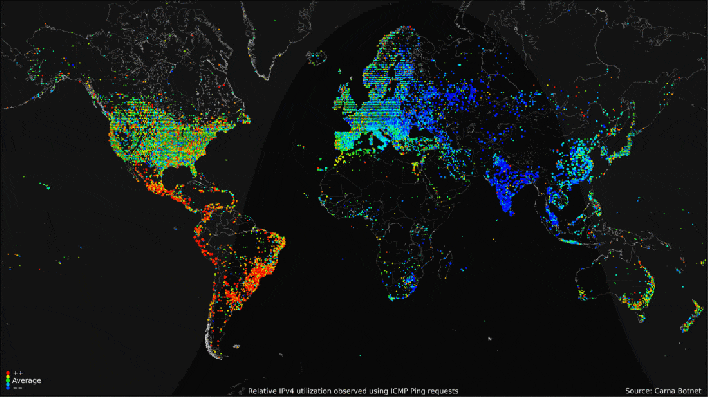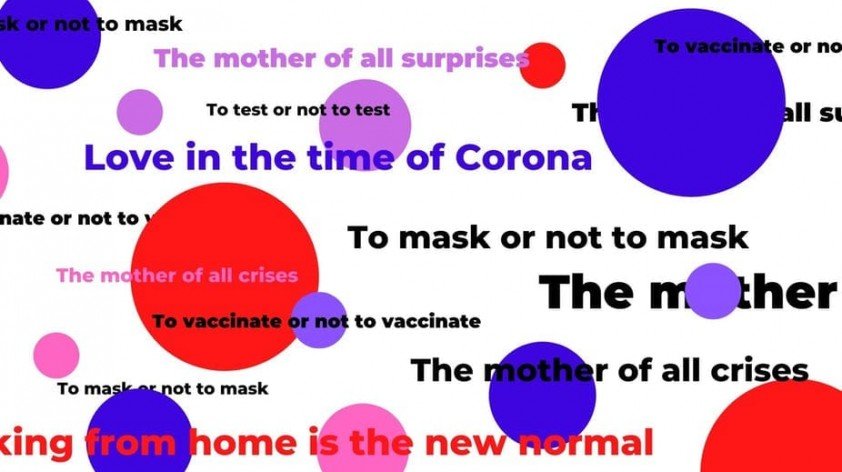A California-based organisation hopes to use machine learning to decipher animal communication on a global scale. However, there are many who have their doubts about the initiative. Raskin is the co-founder and president of the Earth Species Project (ESP), a non-profit organisation with the audacious goal of deciphering non-human communication using machine learning, making all the knowledge available to the…
Lights, sounds or screens with messages: How can self-driving cars interact with humans to make their intentions clear? Autonomous driving promises to bring lots of benefits, ranging from more safety to increased mobility. However, the introduction of self-driving cars also means that we have to come up with means to communicate the intentions of these vehicles when there is no…
Image created by a botnet of 420,000 devices – watch 24 hours of global Internet activity in 8 seconds, with the higher activity in reds and yellows, and the wave shape showing where it’s day and night. The global digital language divide ÷ Try to visualise the Internet. For many, it is something hazy, suspended somewhere above our heads…
More than just words: How language affects the way we actually think Words work as a glue, allowing us to group together different experiences under one label. This is especially true for concepts that we cannot see or touch. But we still don’t really understand how language works in shaping the meaning of these more abstract concepts, or how it…
As people around the world travel more and receive more formal education, languages are predicted to vanish at an alarming rate. Denser road networks, higher levels of education, and even climate change are just a few of the factors that could lead to the loss of more than 20 percent of the world’s 7,000 languages by the end of…
Study reveals how emotional context affects how we use and understand language at the neural level. Language and social identity have been making headlines recently. Last month, Air Canada’s CEO Michael Rousseau faced scrutiny over not knowing French – his language deficit is helping support Bill 96 in Québec (which seeks to change the Canadian Constitution to affirm Québec as a nation and…
Language gives us the power to describe, virtually without limit, the countless entities, actions, properties, and relations that compose our experience, real and imagined. But what is the origin of this power? What gave rise to humankind’s ability to use words to convey meanings? Traditionally, scholars interested in this question have focused on trying to explain language as an arbitrary symbolic code.…
What shape do you think of when you hear the words Bouba and Kiki? Have you ever tried to communicate with someone who doesn’t speak your language? Exchanging frantic gestures and impossible-to-understand words as you both become more and more frustrated? It usually seems like an impossible situation. However, scientists who are interested to learn how sight and sound…
During the COVID-19 pandemic, we have seen an explosion of new words and phrases in English (for example, ‘covidiot’) and other languages, e.g. ‘Coronaspeck’ in German (to describe lockdown weight gain) that have helped us make sense of a period defined by social confusion and constant change, as well as global stagnation. The scope of language innovation in relation to…










